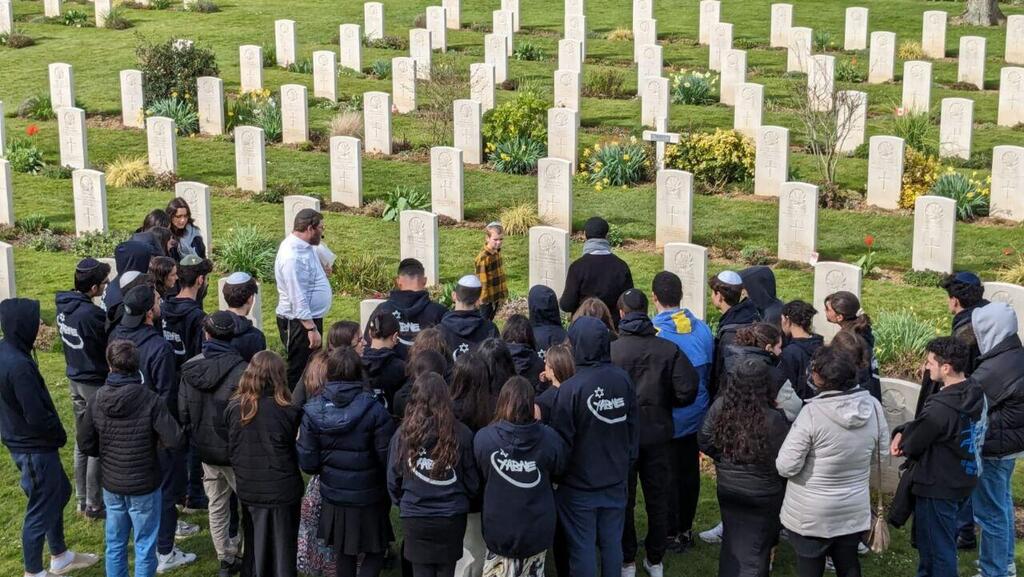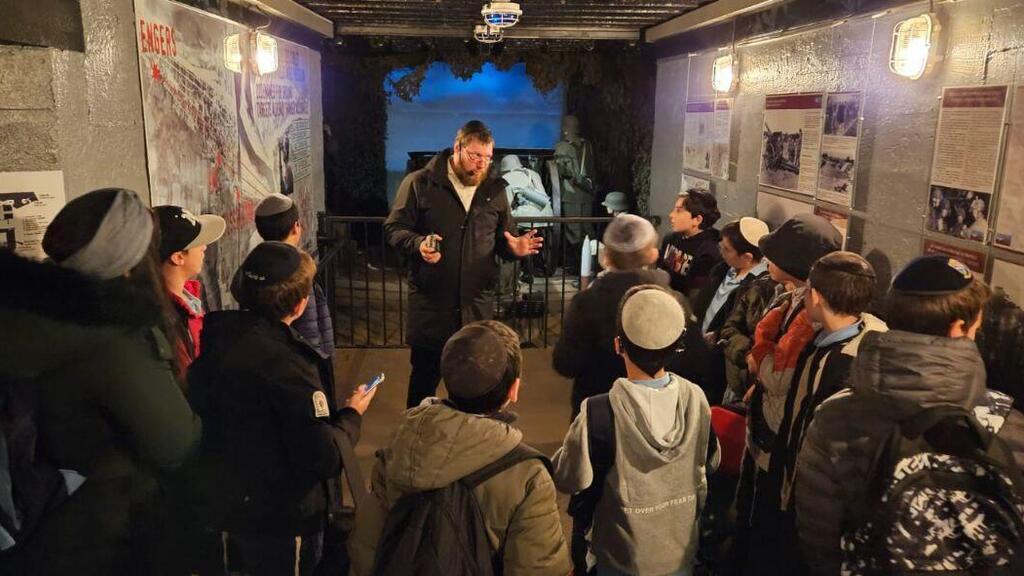Getting your Trinity Audio player ready...
In a special ceremony held this week, Rabbi Mordechai Lewin named the Jews who fell in on D-Day and the ensuing battles, 80 years ago. "There are 22 Jews in the British cemetery, 36 Jews in the Canadian cemetery, and 150 Jews in the American cemetery," he said.
Lewin an emissary of the Chabad sect began writing a Torah scroll in memory of the Jews killed there, when he first participated in the ceremonies commemorating the invasion of France by allied forces, a decade ago. "Every time a group of tourists arrives, organized tours of Jewish communities, relatives of the fallen, youth delegations from Jewish schools all over France, etc., they are honored to write letters in this unique Torah scroll," the rabbi said.
On June 6, 1944, tens of thousands of Allied soldiers landed from the sea and the air on European soil. It was the largest naval landing operation in history, to liberate Europe. This invasion did indeed mark the beginning of the end of Nazi Germany, and the Holocaust in which over six million Jews were murdered.
Throughout the world, and especially in France, and along the beaches of Normandy, state ceremonies were held during the month, in memory of the heroes who gave their lives on D-Day, including many Jewish soldiers, from the armies of the United States and Great Britain, Canada, Australia and other countries.
In the territory of the invasion, there are several military cemeteries, memorial sites and museums. Rabbi Mordechai Lewin and his wife, Zlata, manage the Chabad house in the city of Caen, one of the most important and central cities in the Normandy region. Thanks to the relationships they have developed with the municipal authorities, and with the directors of the memorial sites, they have discovered new and meaningful ways to commemorate the more than 200 fallen Jewish soldiers.
Jewish sources in France claim that the many museums that are scattered in the region and attract millions of tourists from around the world hardly tell about the tragedy of the Holocaust against the Jewish people, nor the heroism of the thousands of Jewish soldiers who were recruited and came to help in the war and save their brothers on the European continent.
"We developed an educational program of commemoration with Jewish motifs, during which the visitor is exposed to the chain of events of D-Day from the point of view of a Jewish soldier who took part in the invasion," Lewin explains.




